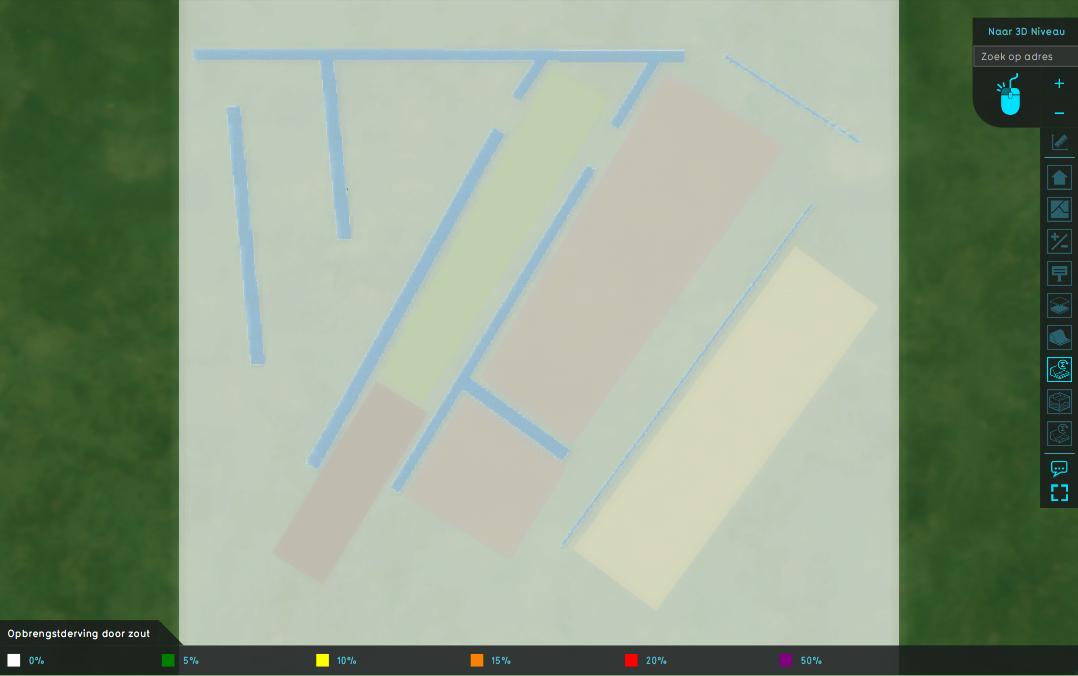Damage salt result type (Waterwijzer Overlay): Difference between revisions
Jump to navigation
Jump to search
No edit summary |
No edit summary |
||
| (2 intermediate revisions by the same user not shown) | |||
| Line 3: | Line 3: | ||
{{result types|type=row|overlay=Waterwijzer | {{result types|type=row|overlay=Waterwijzer | ||
|name=DAMAGE_SALT | |name=DAMAGE_SALT | ||
|icon= | |icon=overlay_icon_waterwijzer_damage_salt.png | ||
|unit=% yield loss | |unit=% yield loss | ||
|mode= | |mode= | ||
|description=The | |description=The loss of agricultural yield due to salt water irrigation or salt water seepage. | ||
}}</onlyinclude>}} | }}</onlyinclude>}} | ||
| Line 14: | Line 14: | ||
{{article end | {{article end | ||
|notes= | |notes= | ||
* These yields are calculated by the Waterwijzer Landbouw API. | * These yields are calculated by the Waterwijzer Landbouw API.<ref name="wwl api" /> | ||
|references= | |||
<references> | |||
<ref name="wwl api">Waterwijzer Landbouw, Wageningen University & Research. https://waterwijzerlandbouw.wur.nl/. Last visited: 29-10-2020</ref> | |||
</references> | |||
}} | }} | ||
{{WaterwijzerOverlay result nav}} | {{WaterwijzerOverlay result nav}} | ||
Revision as of 14:54, 29 October 2020
| Icon | Result type | Unit | Mode | Description |
|---|---|---|---|---|
| |
DAMAGE_SALT | % yield loss | The loss of agricultural yield due to salt water irrigation or salt water seepage. |
This value is calculated for the present crop, using the highest and lowest groundwater levels adjusted by subsidence. When the salt concentration is too high, this leads to a reduction of water absorption of plant roots, increased toxicity, problems with nutrients absorption and decreased root growth.
Notes
- These yields are calculated by the Waterwijzer Landbouw API.[1]
References
- ↑ Waterwijzer Landbouw, Wageningen University & Research. https://waterwijzerlandbouw.wur.nl/. Last visited: 29-10-2020





